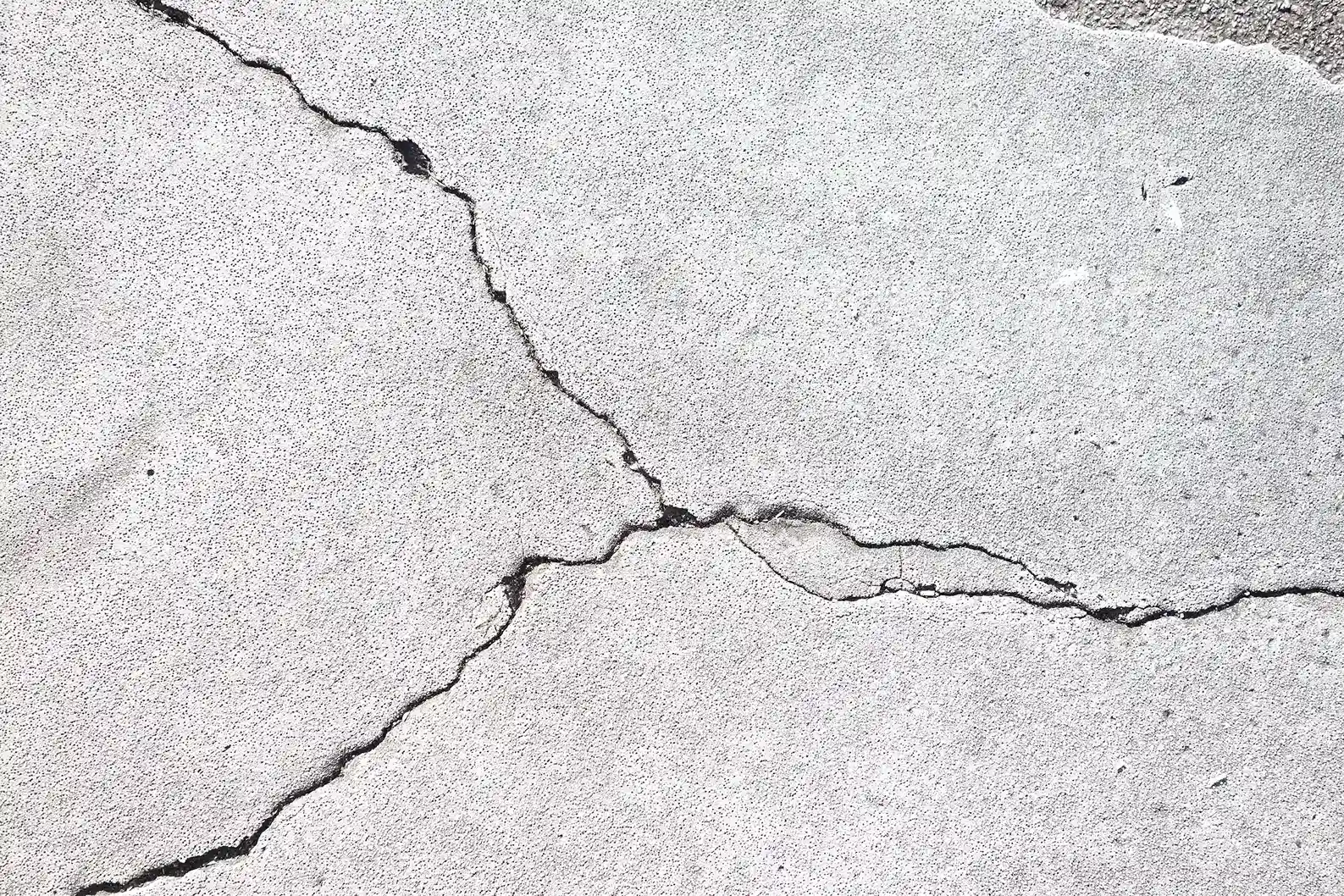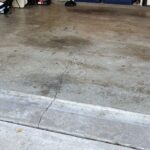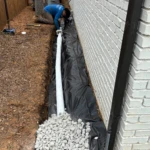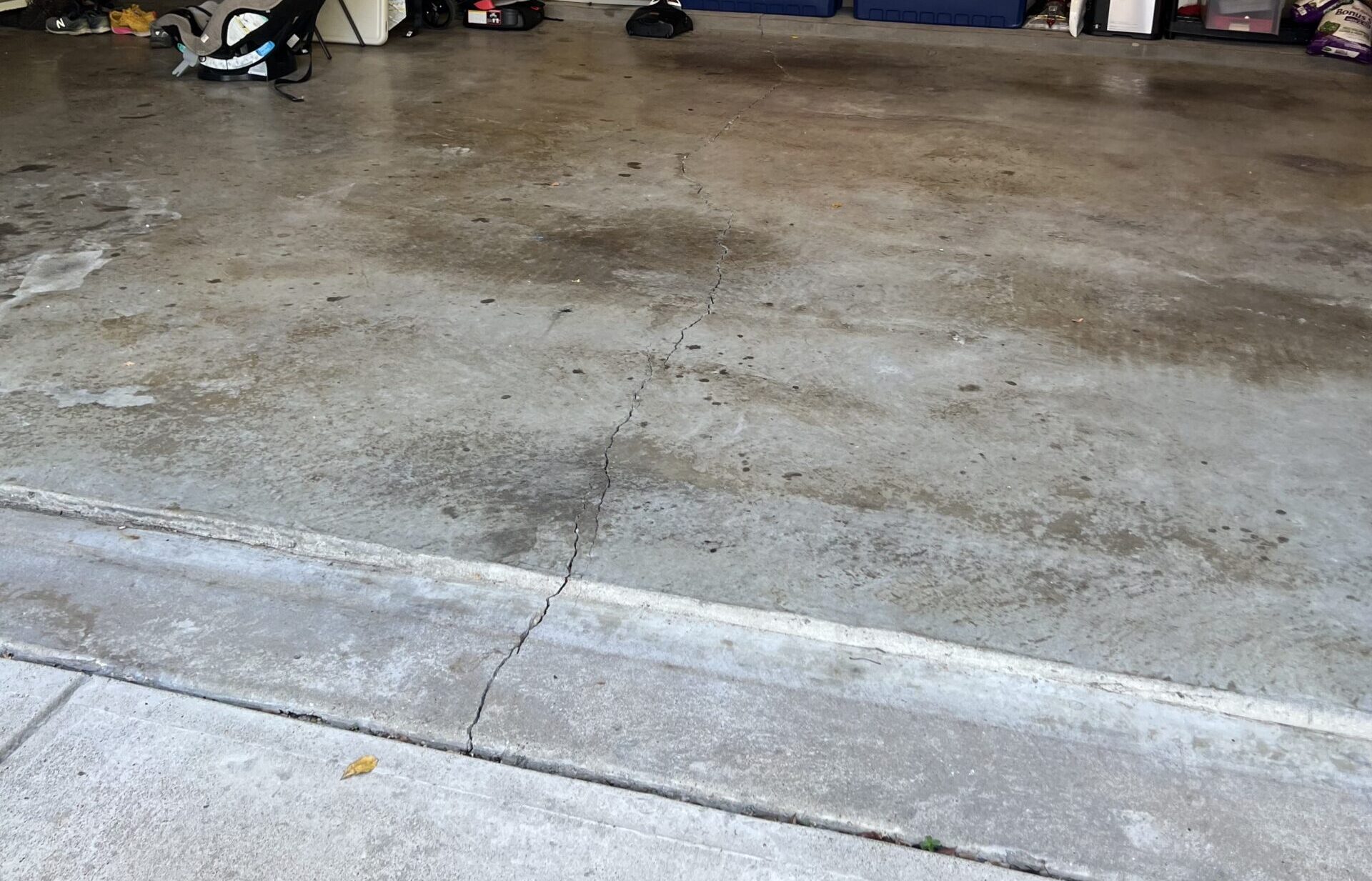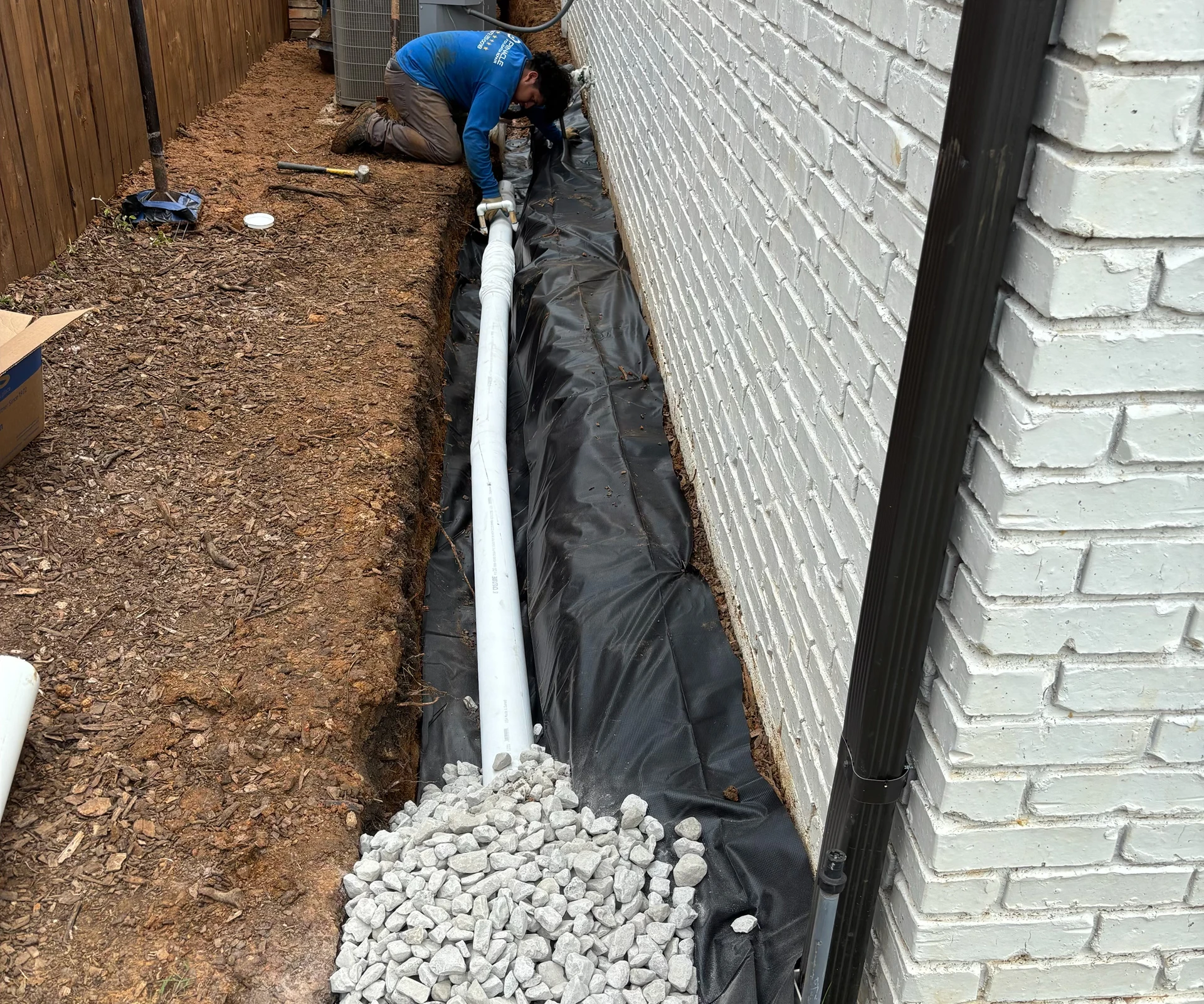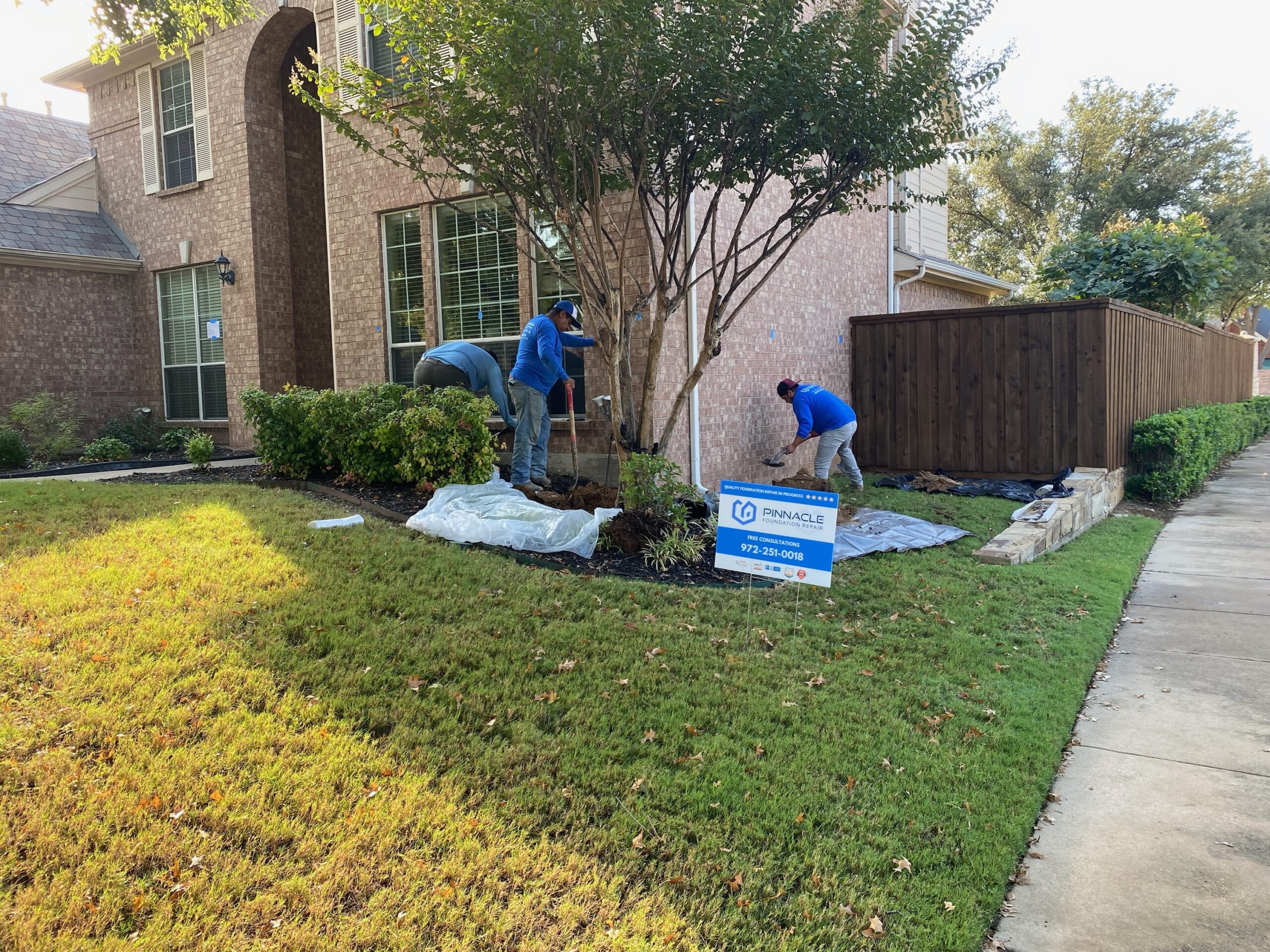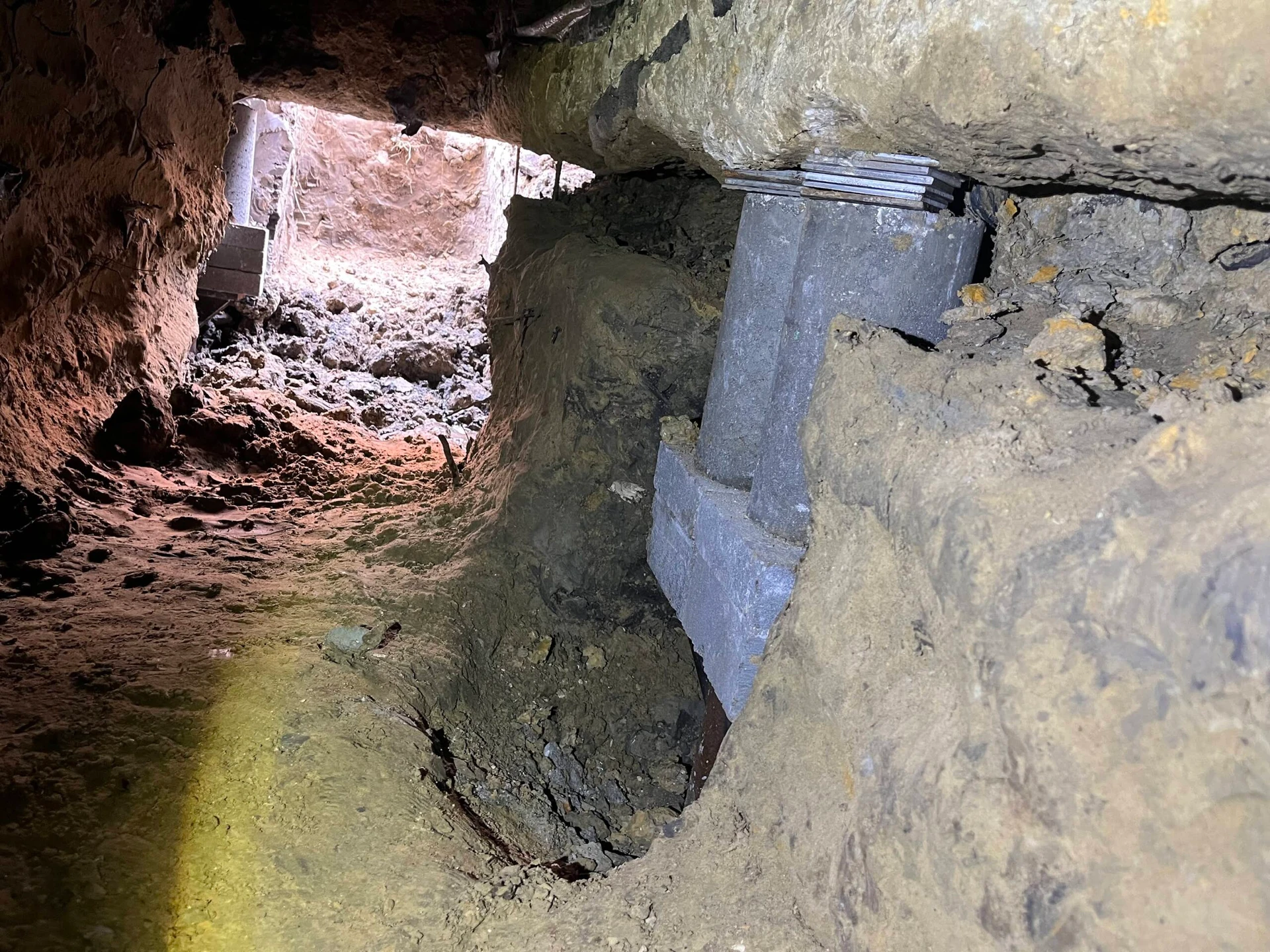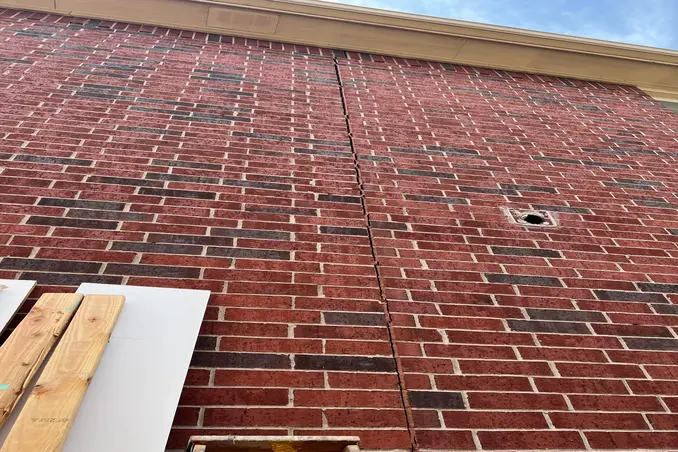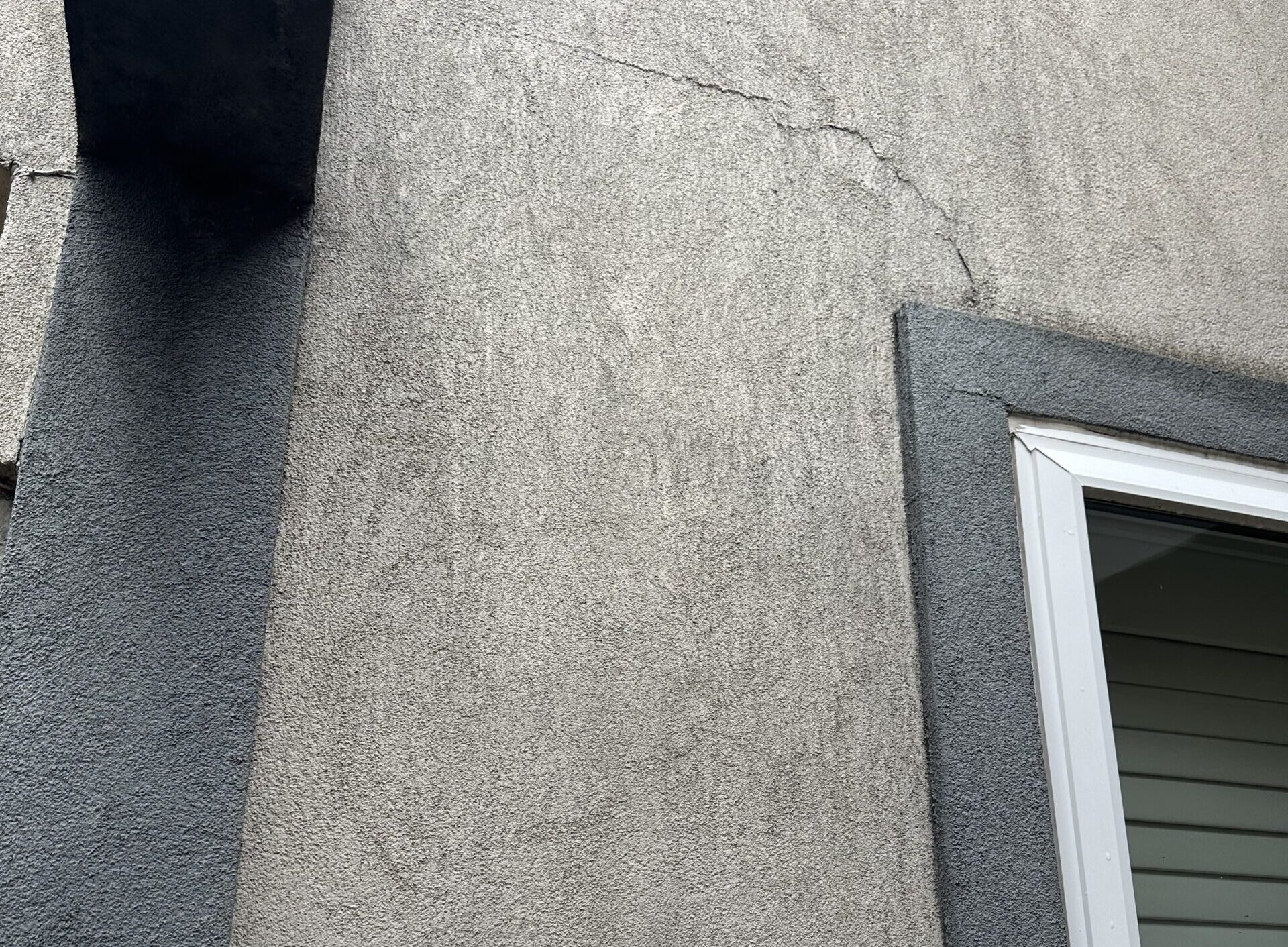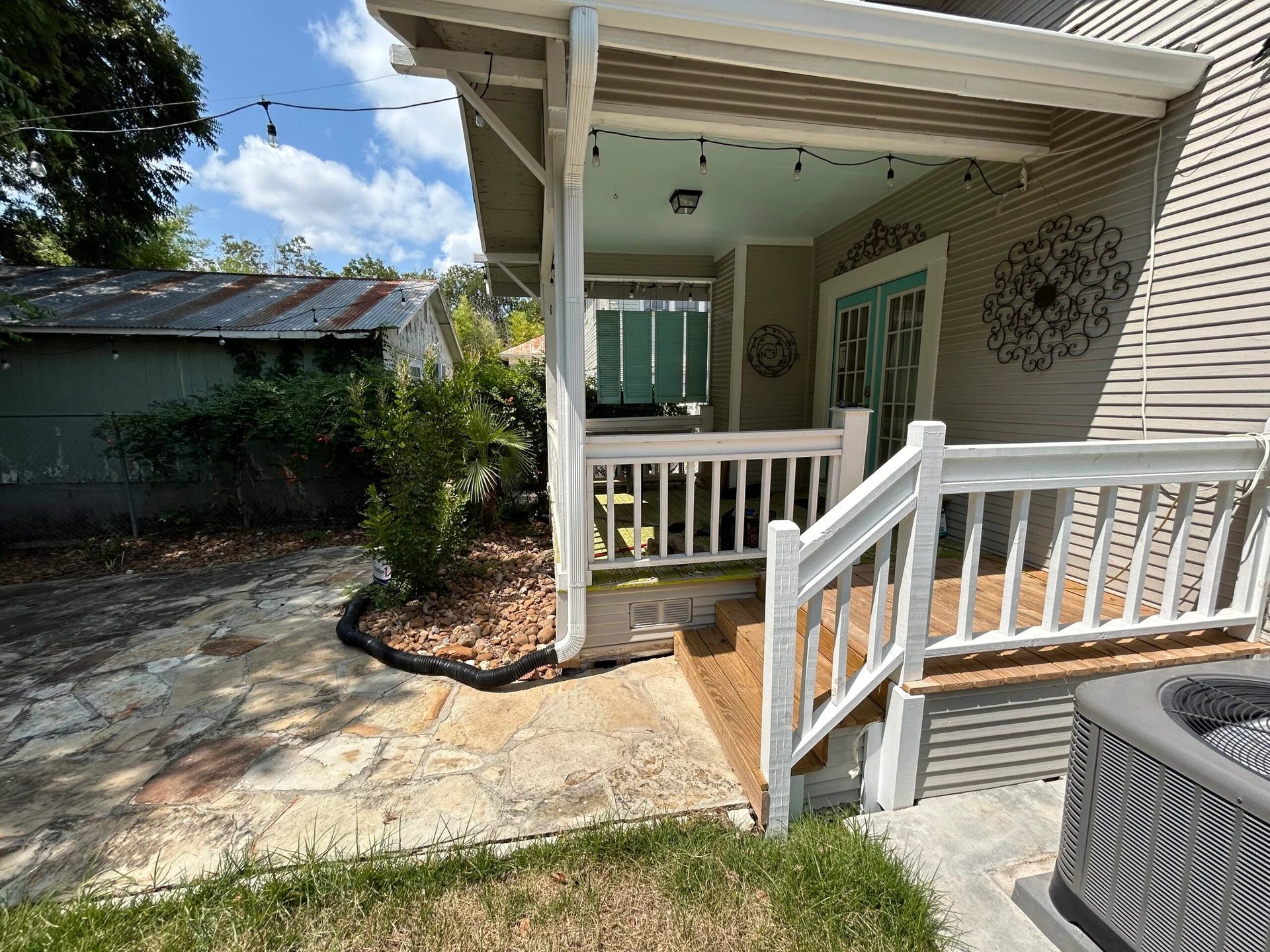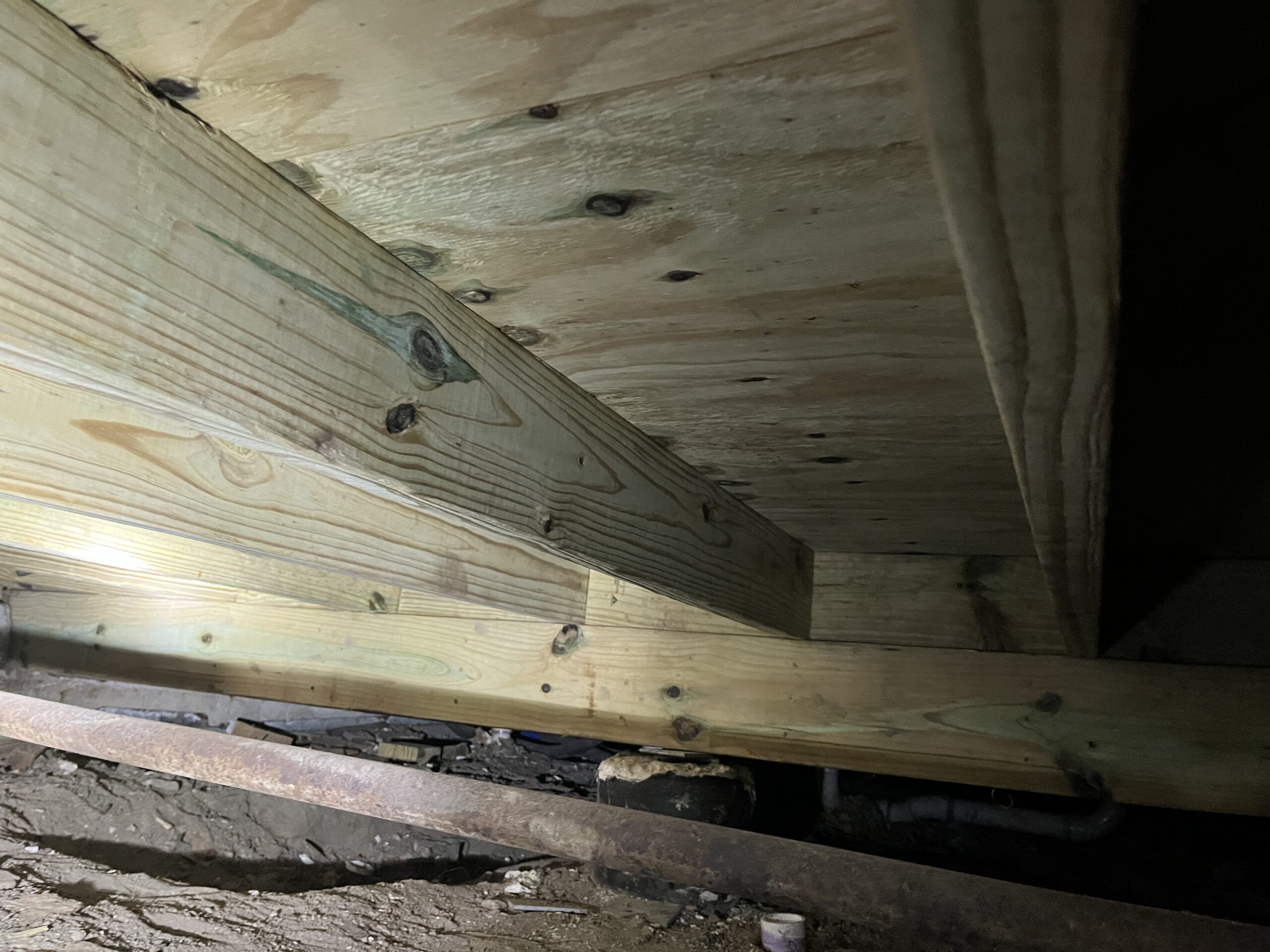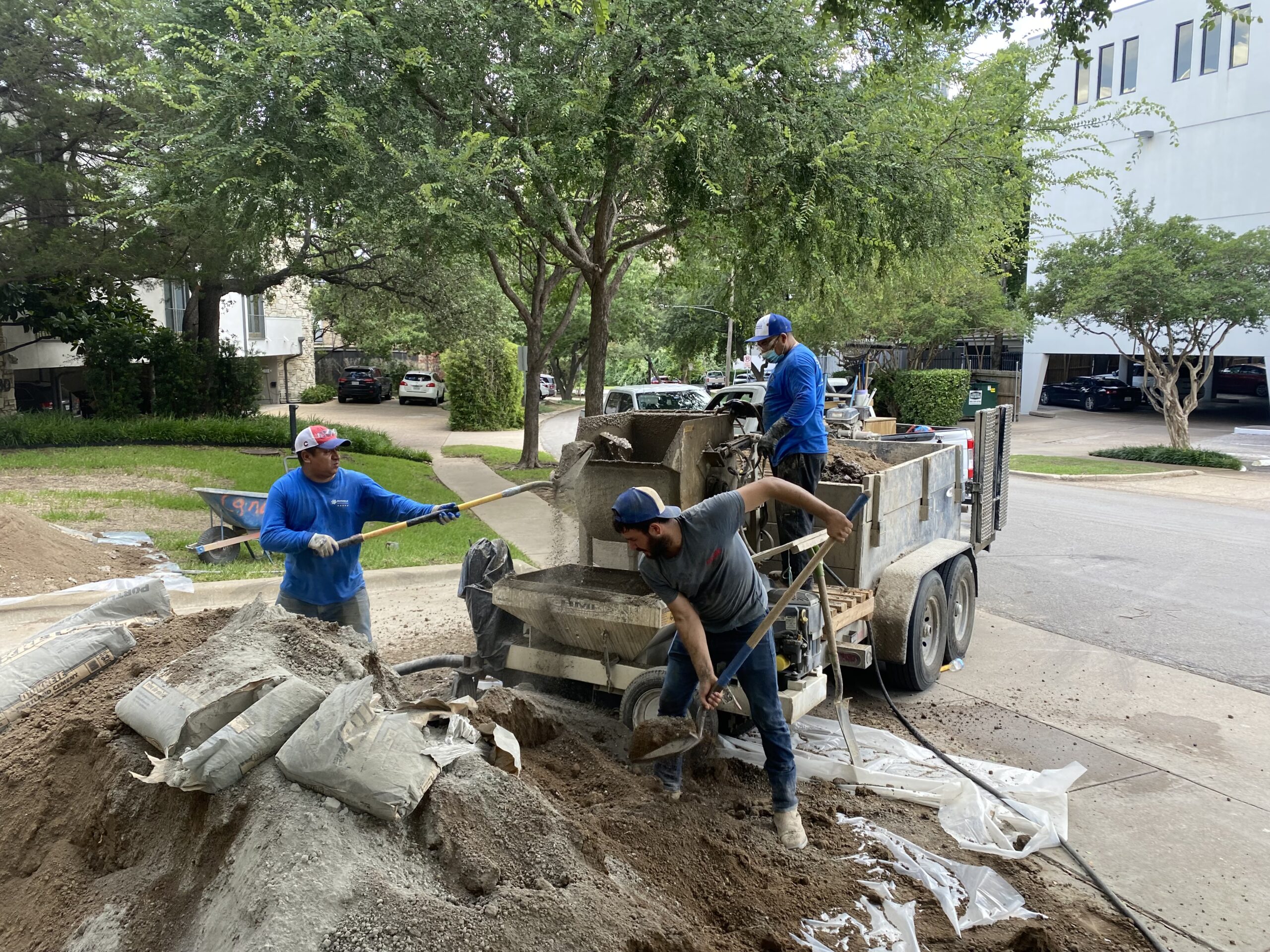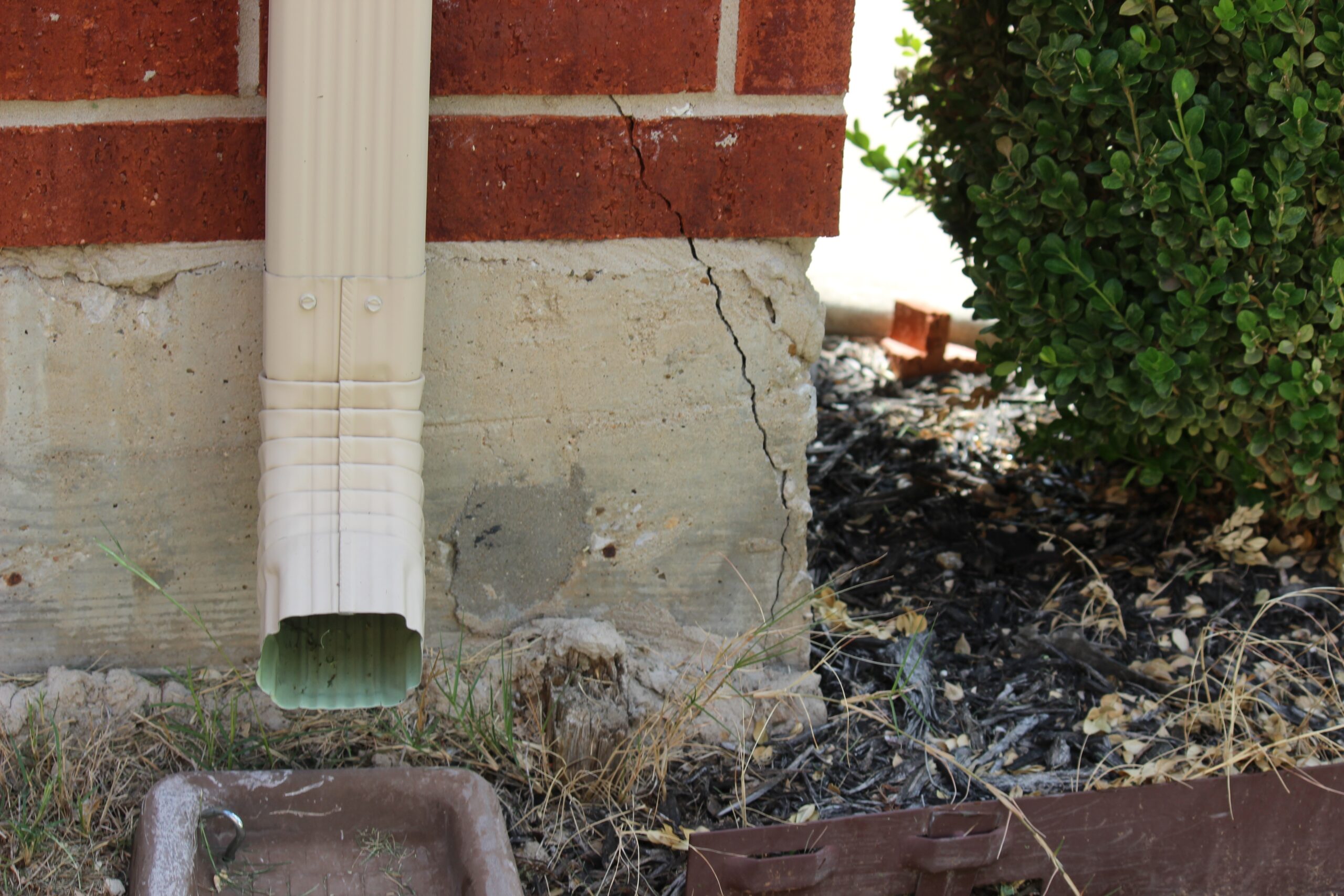Seeing cracks in your foundation can be alarming, and rightfully so. They’re not just unsightly; they could potentially lead to serious structural issues later on. While concrete slab foundations are typically sturdy and can last a long time if they are well-built and properly maintained, they’re not immune to stress and pressure.
If foundation cracks are left unattended, they can escalate, eventually leading to considerable damage and expensive foundation repairs. By understanding the reasons behind foundation cracks, you can take proactive steps to protect your home.
First things first, what are concrete slab foundations?
Concrete slab foundations are a common type of foundation used in many modern homes. A concrete slab is a flat, horizontal concrete surface that is typically four to six inches thick. The slab is poured on top of a layer of gravel or sand, which helps with drainage and prevents the slab from shifting. Once the concrete dries, it forms a solid, stable platform for the house to sit on, and eliminates the need for a crawlspace or basement.
Unfortunately, over time, cracks can develop – with some being hairline fractures and others being wider and more noticeable. While not all cracks are cause for immediate alarm, it’s important to understand what might be causing them.
5 reasons why concrete slabs may crack
Cracks in concrete slabs come in all shapes and sizes. Many of them are preventable, but others are simply out of your control. Regardless of the cause, cracks can lead to bigger problems for your home if they aren’t repaired. Let’s take a look at some of the most common reasons:
Structure Settlement
One of the leading causes of concrete slab foundation cracks is settlement. What exactly is settlement? Simply put, it’s the gradual sinking or compaction of the soil beneath your home’s foundation. There are two main reasons why settlement can occur:
Improper Compaction During Construction: Ideally, the soil is carefully compacted during construction to create a stable base for the foundation. If this process is not done correctly, pockets of loose soil can remain. Over time, these loose areas can compress under the weight of the house, causing the foundation to settle unevenly.
Natural Soil Movement: Even with proper compaction, soil is a dynamic material that can shift and settle naturally over time. Factors like changes in moisture content, expansive soil clays, or even tree root growth can contribute to this natural movement. As the soil settles, it puts pressure on the foundation slab, which can lead to cracks.
Soil Expansion
Another major culprit behind concrete slab cracks is expansive soil. In Texas, clay is the predominant soil type, and it’s got a quirk – it loves soaking up water. So, when it rains hard, the soil swells up. Unfortunately, this poses a serious threat to foundations, as the expanding soil puts immense pressure on the concrete slab. Over time, this pressure can cause cracks to develop in the foundation, weakening its structural integrity.
The expansive Texas clay soil doesn’t just swell; it also shrinks dramatically during dry periods. These continuous cycles of expansion and contraction can put a tremendous amount of stress on the foundation, further accelerating the development of cracks.
Excessive Water/Soil Washout
Water can be a homeowner’s worst enemy when it comes to foundation health. Excessive moisture around the foundation can lead to a problem known as soil washout. This occurs when water runoff, leaky pipes, or poor drainage allows water to erode the soil supporting the foundation. There are two main ways this translates to cracked concrete slabs:
Creation of Voids: As water washes away the soil, it can create voids (empty spaces) beneath the foundation. These voids are bad news for your foundation’s health, leaving it vulnerable to settling and cracking.
Hydrostatic Pressure: Imagine squeezing a balloon full of water. When the water pushes back in all directions, that’s essentially hydrostatic pressure. So when water accumulates around the foundation and becomes trapped in any empty spaces, it acts like that water in the balloon. It pushes against the foundation walls with a lot of force, adding extra stress and potentially causing cracks, especially if the soil wasn’t properly compacted beforehand.
Climate Extremes
Concrete is a durable material, but it’s not immune to the forces of nature. Extreme temperature fluctuations (whether it’s scorching hot or freezing cold), can put stress on concrete slab foundations and cause them to crack.
Just like most materials, concrete expands slightly when it’s hot and shrinks when it’s cold. Normally, this isn’t a big deal, but when the temperature swings are drastic, it can make concrete move a lot. Over time, this constant back and forth can stress the foundation and cause cracks to appear. In extreme cases, the foundation may actually shift, which can cause even more damage.
Under-Slab Plumbing Problems
Your concrete slab’s plumbing may be out of sight, but it’s working hard to keep your water flowing. However, if things go wrong down there, it can cause cracks in your foundation. Here’s why:
Those pipes under your slab have to deal with a lot of pressure to keep your water flowing. If the pipes weren’t installed correctly, those high pressures can cause them to crack or burst. And guess what happens when a pipe bursts? Water leaks out! A leaky pipe might seem like a minor plumbing issue, but underground, it can wreak havoc on your foundation. That leaking water can wash away the soil around your foundation, creating voids and leaving your slab poorly supported. These hollow areas can cause the foundation to settle unevenly, leading to cracks. So, a small leak today could mean big trouble for your foundation tomorrow.
Is your concrete slab foundation showing cracks? Don't panic, Pinnacle can help!
Cracked foundations can be scary, but understanding why they happen is the first step to fixing them. If you’ve read this far, we’ve already covered some of the most common culprits behind concrete slab cracks.
But what if you see cracks in your own foundation?
Here’s the good news: you don’t have to face foundation problems alone. At Pinnacle Foundation Repair, we’ve been serving your neighborhoods in Texas for decades, helping homeowners just like you understand and address foundation issues.
Our experienced professionals can inspect your foundation, identify the cause of the cracks, and recommend the most effective repair solutions. Don’t wait for cracks to worsen – contact Pinnacle Foundation Repair today to schedule your FREE assessment and get peace of mind about your home’s foundation.

